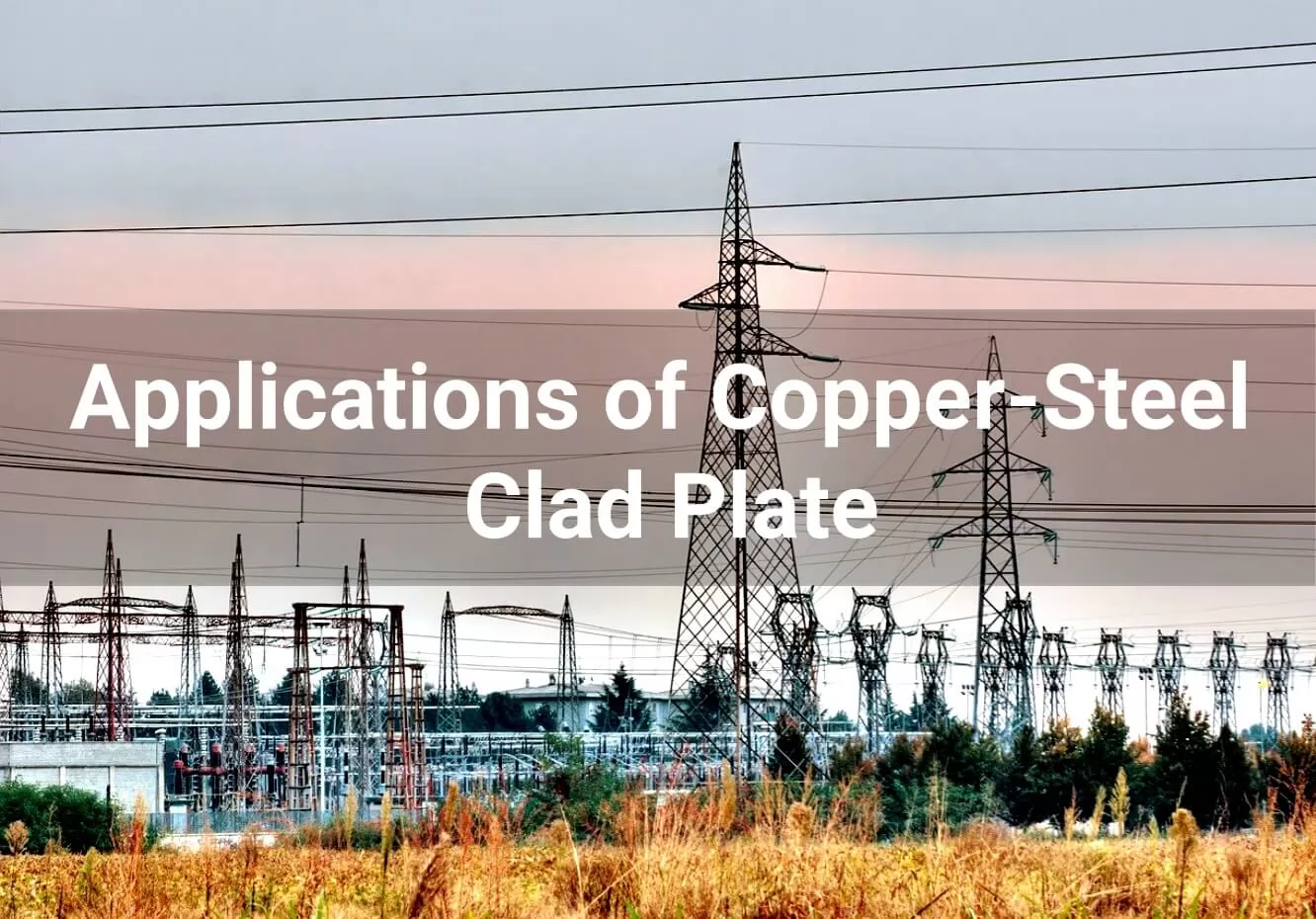


Copper-steel clad plates are cladding materials formed by bonding a layer of copper to carbon steel through processes like explosion bonding or roll bonding. These plates combine the high electrical and thermal conductivity of copper with the mechanical strength and cost-effectiveness of carbon steel. This combination makes copper-steel clad plates suitable for industries that require excellent conductivity, corrosion resistance, and structural strength. They are widely used in industries such as power generation, marine engineering, electrochemical processing, and electrical applications.
|
Cladding layer |
Available Grade |
Application |
|
C71500, C70600, C46400, TUI, T2 |
Power Generation,Marine,Electrochemical Equipment,Electrical Busbars and Conductors | |
|
*These are typical Grades. Please consult if your required standard/grade is out of the list. |
||
In power generation, particularly in condenser tubes and heat exchangers, copper-steel clad plates are used to maximize heat transfer efficiency. Copper’s excellent thermal conductivity ensures efficient heat exchange, while the carbon steel base provides structural integrity, making these plates ideal for use in steam condensers and other high-temperature environments in power plants. The combination helps optimize performance while lowering costs compared to using solid copper.
Copper-steel clad plates are extensively used in marine applications, such as seawater piping systems and shipbuilding. The copper layer provides excellent corrosion resistance in seawater environments, while the steel backing offers the necessary structural strength to handle the stresses of marine operations. This combination makes copper-steel clad plates ideal for constructing hulls, piping systems, and heat exchangers that are exposed to saltwater.
In electrochemical processing industries, such as electrolysis and electroplating, copper-steel clad plates are widely used due to copper's superior electrical conductivity and corrosion resistance. These plates are often used in the construction of anodes, cathodes, and electrolytic cells. The copper layer facilitates efficient current flow, while the steel backing provides mechanical support, making them reliable in harsh chemical environments.
Copper-steel clad plates are commonly used in electrical busbars, transformers, and other power distribution systems. The high conductivity of the copper layer ensures efficient electrical transmission, while the steel layer offers mechanical strength, making these plates more affordable than using pure copper. This combination is ideal for handling high electrical currents in industrial and power grid applications, ensuring durability and performance.



Fugo Tech is focused on the manufacturing of clad metal plate and distributes the Stainless Steel, Titanium, Nickel Alloy, Zirconium and other non-ferrous metal pipes, fittings, flanges, and fasteners.